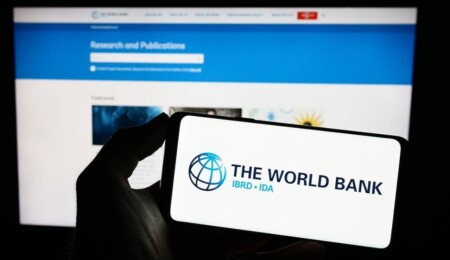New World Bank Report Identifies Key Steps to Strengthen Economic Resilience in Turkish Cypriot Economy

The Turkish Cypriot economy experienced strong growth in 2024, yet inflationary pressures remain high and fiscal pressures elevated, according to a new World Bank report. The report, part of the EU-funded Supporting Economic Convergence and Integration in Cyprus program, outlines recommendations to enhance competitiveness and intra-island economic integration.

The Macroeconomic Monitoring Report 2025: Beyond Bottlenecks – Fostering Economic Integration estimates that the Turkish Cypriot economy grew by 6.4 percent last year, primarily driven by domestic consumption. Higher wages in both the ‘public’ and private sectors helped mitigate inflation and boost spending. However, Green Line crossings—a key indicator of service demand—remained stagnant, and intra-island commerce declined slightly. Currently, Green Line trade accounts for just 10 percent of the Turkish Cypriot community’s external sales, well below potential, highlighting the need to address regulatory practices that impede economic integration.
Looking ahead, growth is projected to slow to approximately 4.2 percent, influenced by softer external and domestic demand, persistent inflation, and rising fiscal pressures. To support sustained and inclusive growth, policy priorities include enhancing spending efficiency, broadening the tax base, and improving the targeting of social protection measures. Structural reforms remain key for enabling private sector development.
This year’s report places special emphasis on the unrealized potential for greater trade integration on the island. It highlights the opportunity to modernize regulatory practices in ways that could reduce consumer prices, expand supplier options, and enhance economic competitiveness, particularly by supporting businesses that drive growth and job creation.
“Products entering the Turkish Cypriot community cost more than in many other economies, and much of this is driven not by market forces but by regulatory distortions,” said Anna Akhalkatsi, World Bank Division Director for the European Union. “Reducing trade frictions and improving regulatory transparency could unlock significant opportunities for greater economic convergence and integration across the island.”
To foster economic integration and unlock shared prosperity, the report recommends simplifying licensing requirements, replacing outdated pre-permit systems with risk-based controls at entry points, and improving market surveillance and regulatory transparency. It also suggests piloting incentives for compliant traders, aligning standards, strengthening infrastructure, improving access to market information and finance, and reviewing taxation practices that currently limit intra-island trade flows.
About the Macroeconomic Monitoring Report:
The Macroeconomic Monitoring Report is an annual report funded by the European Union and prepared by the World Bank to analyze economic developments and outlook for the Turkish Cypriot economy. Its findings aim to help guide local and international stakeholders in formulating policies to support economic convergence and integration in Cyprus.
The full report content can be found here:
https://www.abbilgi.eu/publications/beyond-bottlenecks-fostering-economic-integration-2218


Comments
Attention!
Sending all kinds of financial, legal, criminal, administrative responsibility content arising from illegal, threatening, disturbing, insulting and abusive, humiliating, humiliating, vulgar, obscene, immoral, damaging personal rights or similar content. It belongs to the Member / Members.